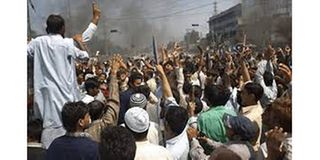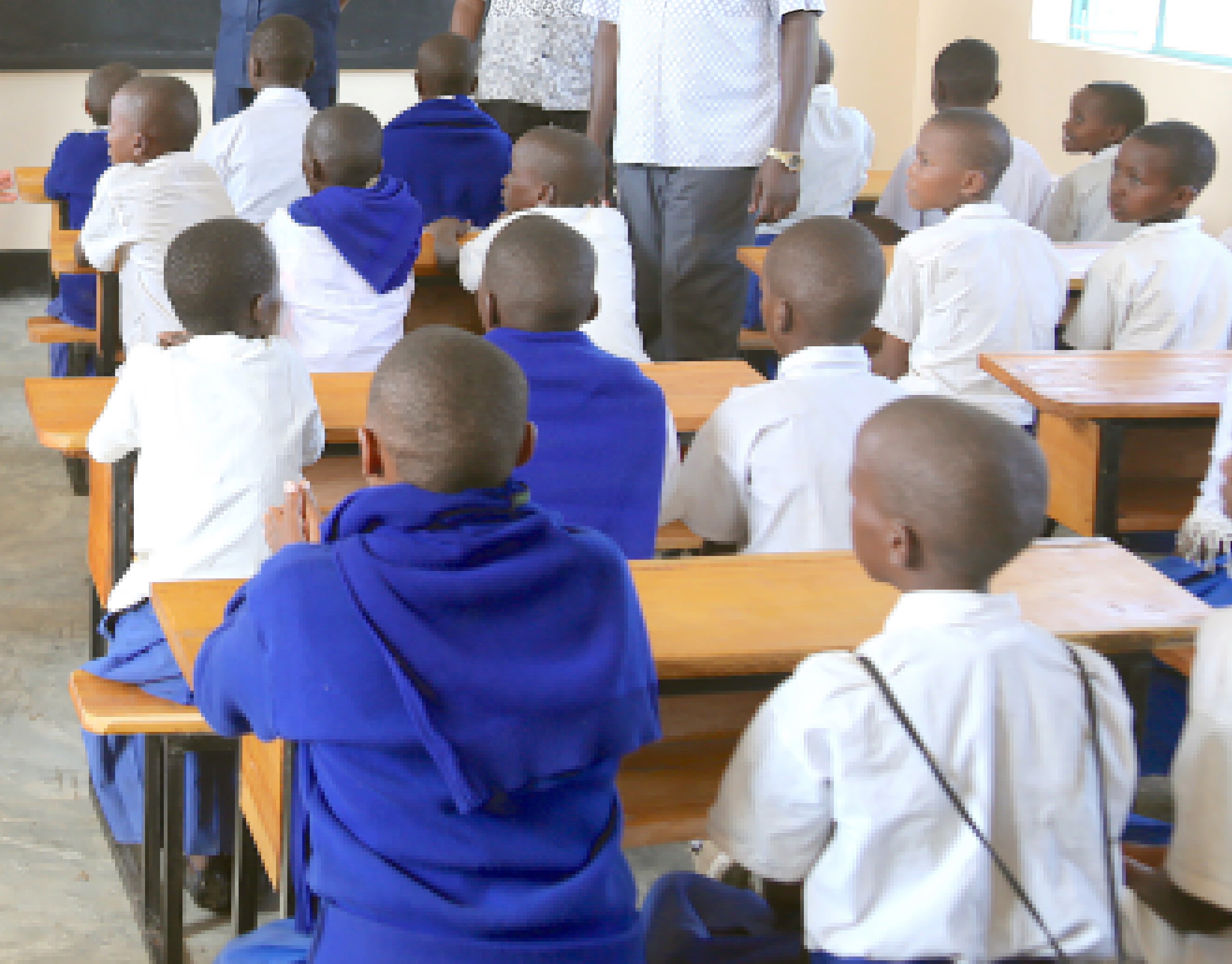A cry for help in Pakistan-occupied-Kashmir: Unveiling the human rights crisis

By Harleen Kaur
The recent incident in Pakistan-Occupied-Kashmir (PoK) where a police officer was killed and more than 100 law enforcement agents were injured during protests against inflation and lack of amenities serves as a grim reminder of the longstanding human rights violations and unrest in the region.
Since its forcible occupation by Pakistan in 1947, PoK has been subjected to systematic repression and denial of basic rights by the Pakistani state.
This article delves into the layers of political, economic, and social injustices that have plagued PoK for decades, highlighting the urgent need for international attention and intervention.
The veil of political repression
Political repression has been a hallmark of Pakistan’s control over PoK. The region lacks autonomy, with governance firmly controlled by Islamabad through puppet administrations. Elections are often rigged, dissent is violently suppressed, and political activists are routinely targeted for arrest or disappearance.
This lack of political freedom has fueled widespread discontent among the local population.
The illusion of democratic processes is maintained by Islamabad, but the reality is starkly different. The people of PoK have no say in their governance, and any attempts to challenge the status quo are met with brutal repression. Political parties that advocate for autonomy or independence are banned, and their leaders face constant surveillance, harassment, and imprisonment. This environment of fear stifles any meaningful political discourse and perpetuates a cycle of oppression.
Economic marginalization and neglect
Moreover, PoK has suffered from neglect in terms of socio-economic development as well. Basic amenities like healthcare, education, and infrastructure are woefully inadequate, leading to widespread poverty and unemployment. Economic policies favor Islamabad, with little investment directed towards the development of the region. This economic marginalization has further exacerbated the grievances of the people of PoK.
The economic disparity is glaring. While the rest of Pakistan, particularly its major cities, witnesses infrastructural development and economic growth, PoK remains stuck in a time warp.
The region’s potential for tourism, agriculture, and hydropower remains untapped, deliberately ignored by Islamabad’s policymakers.
This neglect not only stymies economic growth but also perpetuates a cycle of poverty that fuels further discontent.
Silencing dissent: The struggle for free expression
Freedom of expression is severely curtailed in PoK. Journalists, activists, and intellectuals face harassment, intimidation, and violence for daring to criticize the Pakistani government. Censorship and control over media outlets prevent the dissemination of alternative viewpoints, effectively silencing dissenting voices.
The media landscape in PoK is bleak. Independent journalism is virtually non-existent, with the state tightly controlling the narrative. Journalists who dare to report on human rights abuses or corruption are often threatened, assaulted, or even disappeared.
This censorship extends to social media, where activists’ accounts are frequently suspended or shadow-banned, further stifling any attempt at mobilizing public opinion against the injustices.
Human rights violations: A daily reality
Human rights violations in PoK are rampant and egregious. Arbitrary arrests, extrajudicial killings, torture, and enforced disappearances are commonplace. Security forces operate with impunity, targeting dissenters and perpetuating a culture of fear and intimidation. The recent incident of police brutality during the protests is just one example of the routine violence inflicted upon the people of PoK.
The stories of those who have suffered at the hands of Pakistani security forces are harrowing. Families are torn apart by the disappearance of loved ones, often abducted in the dead of night without any explanation.
Torture is routinely used to extract confessions or intimidate activists, leaving physical and psychological scars that last a lifetime. The lack of accountability for these abuses only emboldens the perpetrators, creating an environment where human rights are trampled with impunity.
The rise of separatist movements
The repressive policies of the Pakistani state have fueled many separatist movements. Many residents advocate for independence from Pakistan, citing historical grievances and the denial of basic rights. However, these voices are often marginalized, and separatist leaders face persecution and repression.
The separatist sentiment in PoK is rooted in a deep sense of historical injustice. The people of PoK have long felt betrayed by Pakistan’s broken promises of autonomy and development. The region’s distinct cultural and ethnic identity further fuels the desire for independence. Yet, any attempt to organize or mobilize around these sentiments is met with swift and brutal repression, pushing the movement underground but never extinguishing it.
The protests: A symptom of deeper grievances
The recent protests against inflation and lack of amenities are symptomatic of the deep-seated grievances of the people living under Pakistani occupation.
Calls for international intervention to address the human rights situation in PoK have grown louder, with activists like Amjad Ayub Mirza appealing to the Indian government for support.
The protests that erupted on May 10, initiated by the Awami Action Committee (AAC), decrying inflation, prompted a swift crackdown by security forces. A shutter-down strike ensued, accompanied by police resorting to teargas shelling. Demonstrations erupted across several districts including Muzaffarabad, Sehnsa, Mirpur, Rawalkot, Khuiratta, Tattapani, and Hattian Bala. In response, the PoK government invoked Section 144, effectively shuttering educational institutions and offices. Disturbing footage circulating on social media depicted police wielding batons against protesters, resulting in more than a hundred people getting injured.
Amjad Ayub Mirza also alleged that the Pakistani forces opened fire on unarmed civilians, escalating tensions further. Mirza urged the Indian government to intervene, citing the deteriorating situation and advocating for independence not only for PoK but also for Gilgit Baltistan.
Pakistan’s rhetoric on Kashmir
Pakistan’s consistent rhetoric on advocating for the rights of Kashmiris on international platforms stands in stark contrast to its own egregious treatment of Kashmiris under its control. The glaring hypocrisy of Pakistan’s stance becomes apparent when examining its actions and policies in PoK and Gilgit Baltistan (GB).
Pakistan has long portrayed itself as a champion of Kashmiri rights, regularly raising the issue of Kashmir at various international forums. It has utilized platforms like the United Nations to highlight alleged human rights violations in Kashmir, garnering international attention and sympathy for the plight of Kashmiris. However, Pakistan’s own record in PoK and GB tells a different story.
It is imperative for the international community to hold Pakistan accountable for its actions and pressure Islamabad to address the plight of Kashmiris under its control. The recent protests and calls for assistance from activists in PoK align with India’s long-standing position on the region, emphasizing the desires of the Kashmiri people to be integrated into the Indian Union.
India’s stance on PoK: A commitment to sovereignty
When India decided to abrogate Article 370, a provision granting special status to Jammu and Kashmir, Pakistan’s reaction was nothing short of tumultuous, despite the fact that it was unequivocally India’s internal matter.
The move, aimed at integrating Jammu and Kashmir more closely with the rest of the country, sent shockwaves across the border, prompting a flurry of frantic diplomatic maneuvers and inflammatory rhetoric from Islamabad.
India’s stance on PoK has been resolute and unambiguous, with top officials reaffirming India’s claim over the region and expressing a commitment to its eventual integration into the Indian Union.
Home Minister Amit Shah, in a bold address delivered at a public meeting in Uttar Pradesh’s Rae Bareli, emphatically asserted India’s sovereignty over PoK, firmly rejecting any notion of relinquishing the territory, even in the face of Pakistan’s possession of nuclear capabilities.
Shah’s words rang out with conviction as he posed a rhetorical question to the gathered crowd, “I want to ask you, if Pakistan has atom bombs, should we leave PoK?”
His response left no room for doubt as he declared, “I promise you today, we don’t get scared of atom bombs, PoK belongs to India and no one can take it away from us.”
Echoing Shah’s sentiments, External Affairs Minister S Jaishankar reiterated India’s position during a media interaction in Mumbai, asserting that the illegal occupation of PoK would end, and the region would inevitably become part of India. Jaishankar emphasized India’s clarity on the matter, citing a parliamentary resolution affirming PoK as an integral part of India’s territory.
The path forward
These statements from key Indian officials reflect not only India’s firm resolve regarding PoK but also its commitment to the aspirations of the Kashmiri people. Recent protests and calls for assistance from activists in PoK align with India’s long-standing position on the region, emphasizing the desires of the Kashmiri people to be integrated into the Indian Union.
The international community must recognize the plight of the people in PoK and Gilgit Baltistan. The persistent human rights abuses, economic neglect, and political repression cannot be ignored any longer. It is incumbent upon global leaders to hold Pakistan accountable and to support the legitimate aspirations of the people of PoK for freedom and justice.
The current situation in PoK is a tinderbox of unrest, fueled by decades of systematic oppression and neglect. The recent protests are not just about inflation or lack of amenities; they are a cry for help from a population that has endured too much for too long. The world must heed this cry and take decisive action to end the suffering of the Kashmiri people under Pakistani occupation.
Disclaimer:The opinions expressed in this article are those of the author and does not represent the position ofThe Citizen



